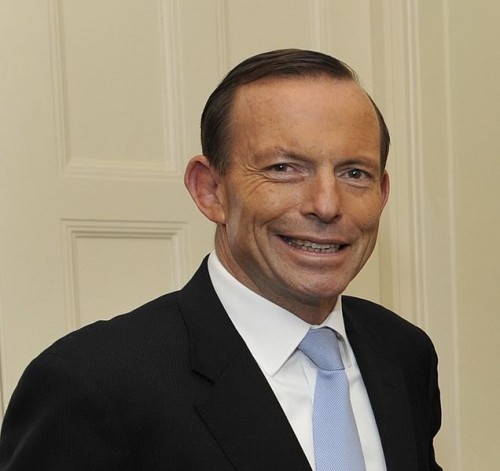Australian Prime Minister Tony Abbott has unveiled a new counter-terrorism strategy that other Western countries should emulate. It seems like an effective method of curtailing the spread of radical Islam.
Under his proposals, announced on February 23, a senior government official will oversee counter-terrorism measures and be placed in charge of efforts to achieve better coordination among Australia’s sometimes squabbling security agencies.
Abbott also promised to crack down on the promotion of hate speech and the incitement of hatred, both of which are often found on jihadist web sites.
In addition, Abbott said he intends to tighten immigration and visa laws and suspend or revoke the citizenship of dual nationals who engage in terrorism.
These measures, if enacted, will complement legislation passed in 2014 making it illegal to advocate terrorism and travel abroad to designated areas — countries like Syria and Iraq — where the jihadist organization Islamic State is on the rampage.
In explaining his rationale, Abbott said, “The terrorist threat is rising at home and abroad, and it is becoming harder to combat.”
He’s put his finger on an increasingly serious problem — the phenomenon of global terrorism, much of which is perpetrated by Muslims from the Middle East in the name of Islam.
As Canadian Prime Minister Stephen Harper said last month in introducing a package of anti-terror measures, “Over the last few years, a great evil has been descending on our world. Jihadi terrorism is one of the most dangerous enemies our world has ever faced.”
Like Harper, Abbott has no illusions about radical Islam, the insidious threat that has faced Western democratic nations since the late 1990s and particularly since the events of September 11, 2001.
Islamic extremists are determined to impose their twisted ideas in Muslim countries, by violence if necessary, and to export their perverted philosophy to the West. They have no inhibitions whatsoever about shedding the blood of innocents. They’re ruthless, cold-blooded killers who will stop at nothing to achieve their aims.

Abbott knows this. He also realizes that Islamic radicalism has already made its appearance in Australia. Last December, a man named Man Haron Monis — a Muslim extremist with ideological ties to Islamic State — held 18 people hostage in a Sydney cafe.
Two of the hostages were killed during the 17 hour-siege, which was something of a wakeup call for Australians who believed that Australia was immune to Islamic radicalism.
They should have known better, considering the fact that Australia has joined the American-led coalition fighting Islamic State, which has spread its baneful influence throughout Syria and Iraq in just a matter of two years.
As Abbott disclosed, at least 110 Australians, some of whom are converts to Islam, have travelled to Syria and Iraq to volunteer their services to Islamic Jihad, which seeks to establish a caliphate, a borderless Islamic state governed by the tenets of Shariah law.
Fifty five of these individuals had been collecting Australian welfare payments, Abbott disclosed, implying that governments must be ceaselessly vigilant in doling out such funds.
Much to his credit, Abbott made another salient point. He urged the leadership of the Muslim community in Australia to condemn the radicalization of young Australian men and women, a process that poisons minds.
“I have often heard Western leaders describe Islam as a religion of peace,” he said. “I wish more Muslim leaders would say that more often, and mean it.”
Abbott’s observation is well worth pondering. It’s incumbent on Muslim leaders to vigorously denounce the cancer that affects their community and brings suspicion upon it.